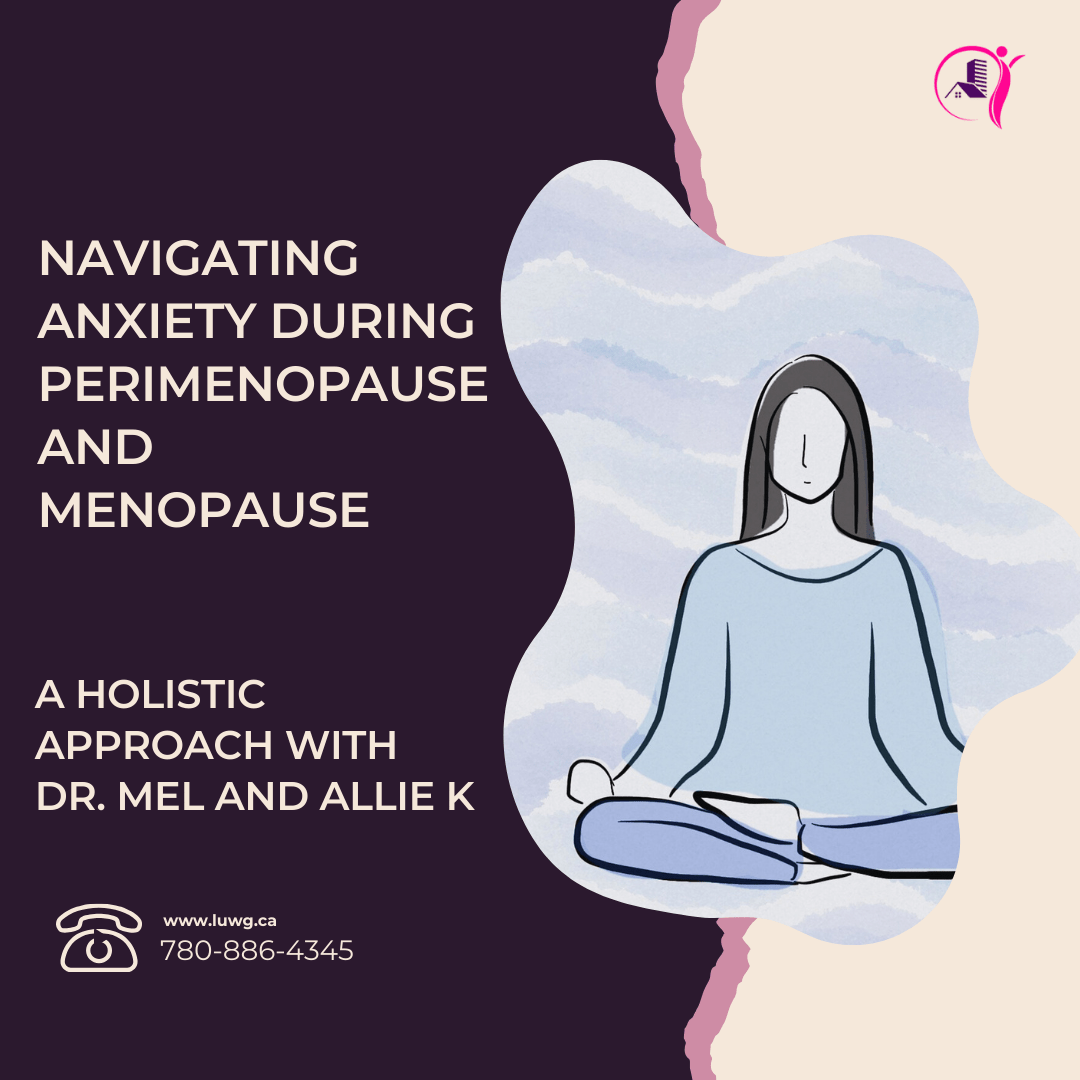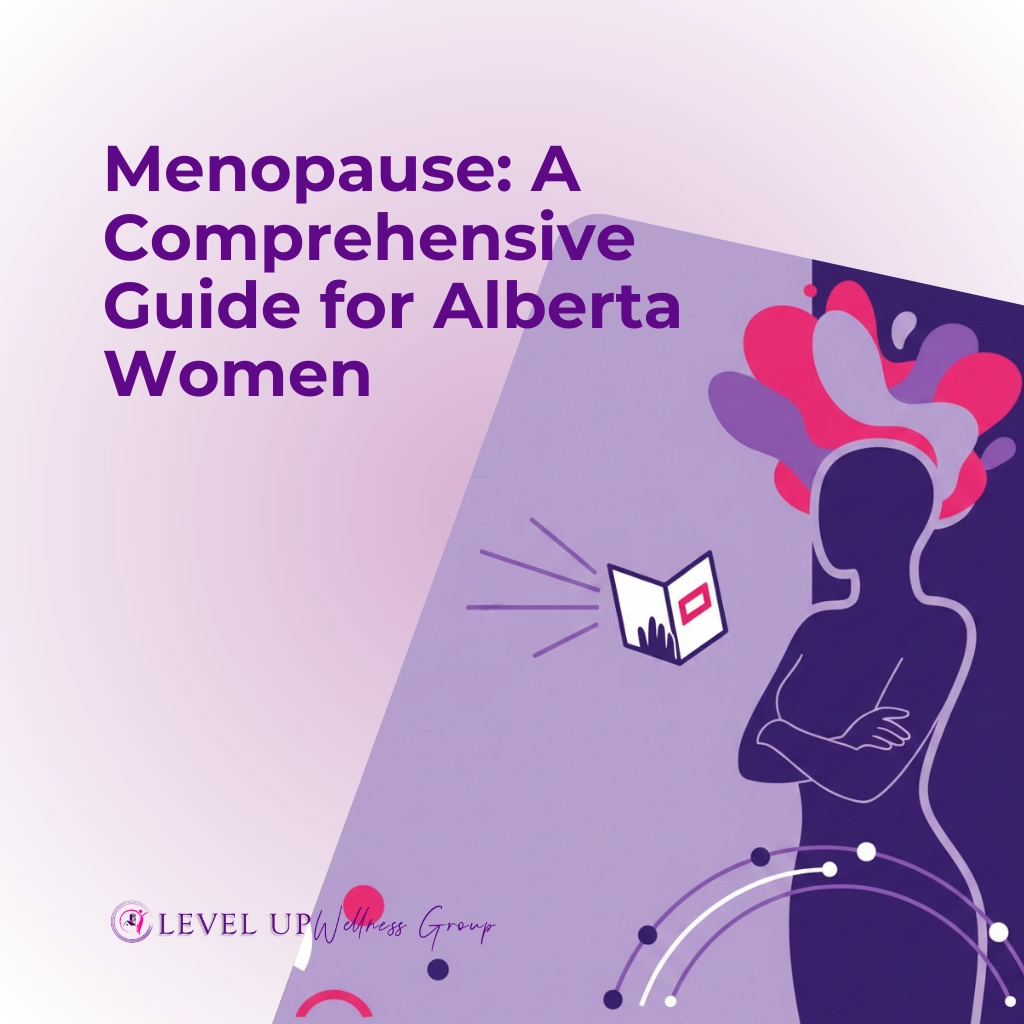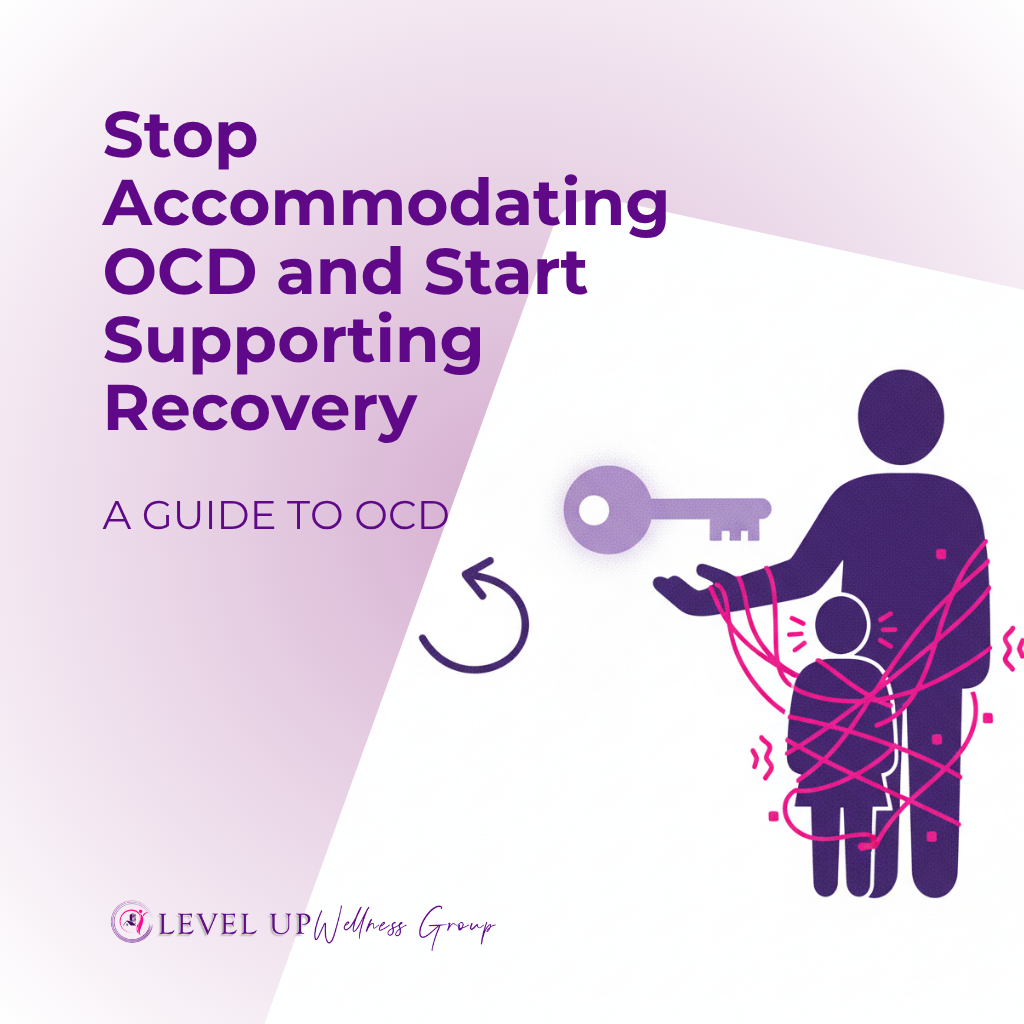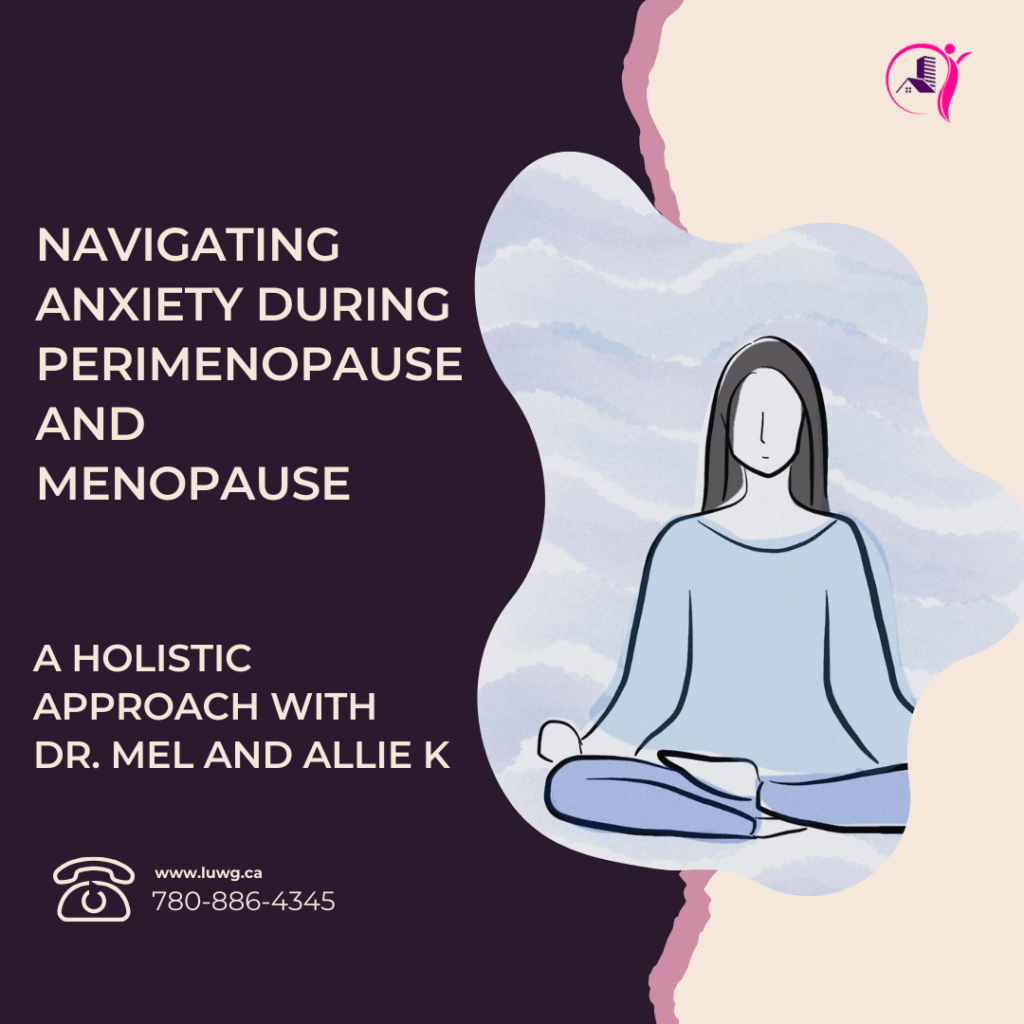
Anxiety is a natural stress response that becomes problematic when it feels persistent, overwhelming, or out of proportion to the situation at hand. It can affect both the mind and body, creating a cycle of worry, tension, and fear that’s hard to shut off—even when there’s no immediate danger.
Common symptoms include racing thoughts, restlessness, difficulty concentrating, irritability, a rapid heartbeat, muscle tension, and disrupted sleep.
How Perimenopause and Menopause Impact Anxiety Levels
For many women, anxiety either begins or intensifies during perimenopause (the transitional years leading up to menopause) and continues into postmenopause. What makes this anxiety different is that it’s often biologically driven, not just situational. Hormonal fluctuations, especially drops in estrogen and progesterone, can directly affect brain chemistry, particularly in areas that regulate mood and stress response.
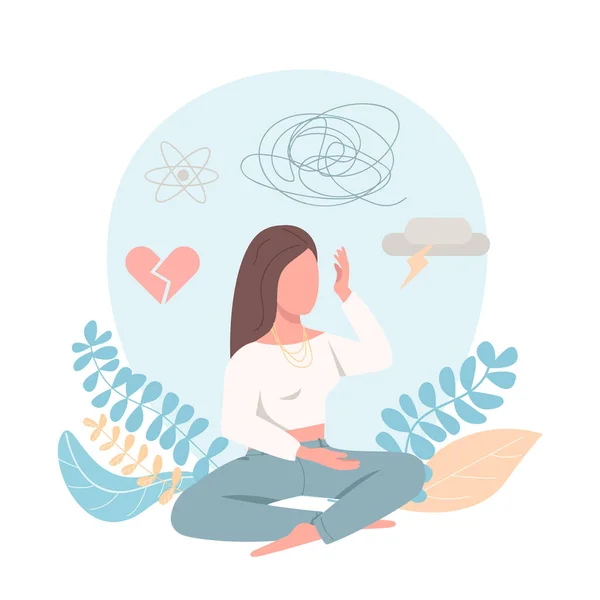
Recognizing Anxiety as a Common Menopause Challenge

At Level Up Wellness Group, we frequently meet women who are experiencing increased worry, restlessness, panic, or even a sense that they’re “losing control” and they’re not sure why. These symptoms are deeply tied to hormonal changes and deserve real attention and compassionate care.
Women in perimenopause and menopause often report:
- Sudden panic attacks (often without clear triggers)
- Persistent or generalized worry about health, relationships, or the future
- Sleep disturbances—racing thoughts at night, early waking
- Irritability or edginess over minor frustrations
- Difficulty concentrating or “brain fog”
- Physical tension, like jaw clenching, headaches, or muscle tightness
- A feeling of being “on edge” or emotionally overstimulated
Lesser-Known Signs of Anxiety in Perimenopausal and Menopausal Women
Chest Tightness or Heart Palpitations (Without Cardiac Cause)
Digestive Discomfort or "Nervous Stomach"
Tingling Sensations or Numbness
Burning Mouth Syndrome
Noise Sensitivity or Sensory Overload
Intrusive Thoughts or Catastrophic Thinking
Skin Crawling Sensation ("Formication")
Restless Leg Syndrome or Body Restlessness
Crying Spells or Emotional Outbursts with No Clear Cause
Frequent tearfulness or bursts of anger that seem to come out of nowhere due to disrupted emotional regulation.
Disconnection or Depersonalization
Feeling like you’re “watching yourself from the outside” or that reality feels distant. This can happen during panic attacks or prolonged stress.
Why Anxiety in Menopause Is Not “All in Your Head”
These experiences are real and common. Up to 50% of women report increased anxiety during the menopause transition. Hormonal shifts are gradual, meaning symptoms can come and go unpredictably.
The Link Between Hormones, Brain Chemistry, and Mood
During perimenopause, hormone levels—particularly estrogen—fluctuate significantly. These changes affect brain areas that regulate emotion, stress, and cognition.
The Role of Oxytocin in Emotional Balance
Oxytocin, the “bonding hormone,” supports emotional regulation, trust, and calmness. Unfortunately, oxytocin levels also decline in menopause, especially alongside falling estrogen, which can heighten anxiety, disconnection, and stress sensitivity.
Why a Collaborative Care Approach Works Best
At Level Up Wellness Group, we integrate the expertise of both psychological and medical professionals.
Dr. Mel, Psychologist – Helps women identify anxious thought patterns, build resilience, and use evidence-based techniques like CBT, mindfulness, and somatic regulation.
Allie K, Nurse Practitioner – Evaluates hormone levels, recommends treatment options like hormone replacement therapy (HRT), and supports wellness through nutrition, lifestyle, and supplements.

When to See a Psychologist for Menopause Anxiety
If you experience frequent worry, panic episodes, or difficulty coping with stress—especially if it affects your relationships, work, or sleep—a psychologist can help you regulate your nervous system and explore mental health impacts.
When to See a Hormone Specialist for Menopause Anxiety
If you have symptoms like hot flashes, night sweats, irregular cycles, vaginal dryness, fatigue, low libido, or brain fog, a hormone specialist can help identify imbalances and guide treatment.
The Risk of Misdiagnosis and Overlooked Symptoms
Without proper support, menopause-related anxiety can be mistaken for other disorders, leading to frustration and emotional isolation.
Red Flags That Indicate You Should Seek Immediate Help
Suicidal thoughts or feelings of hopelessness
Severe panic attacks that interfere with daily functioning
Inability to sleep for days
Extreme mood swings or aggressive behavior
Significant impairment in work, relationships, or self-care
Substance use to cope with anxiety

Supports
Lifestyle and Emotional Support Strategies
Tracking symptoms, maintaining open communication with your care team, and supporting oxytocin naturally through connection, touch, laughter, and bonding activities can make a real difference.
Medical Interventions for Anxiety in Menopause
Hormone therapy, targeted supplements, and lifestyle modifications can help restore hormonal balance.
Reclaiming Calm and Confidence in Menopause
Menopause and perimenopause are powerful life phases that can be met with grace and confidence when the right support is in place.
At Level Up Wellness Group, we’re here to help you thrive—mind and body—through every stage of this journey.
Written by Dr. Mel, Psychologist, and Allie K, Nurse Practitioner at Level Up Wellness Group


